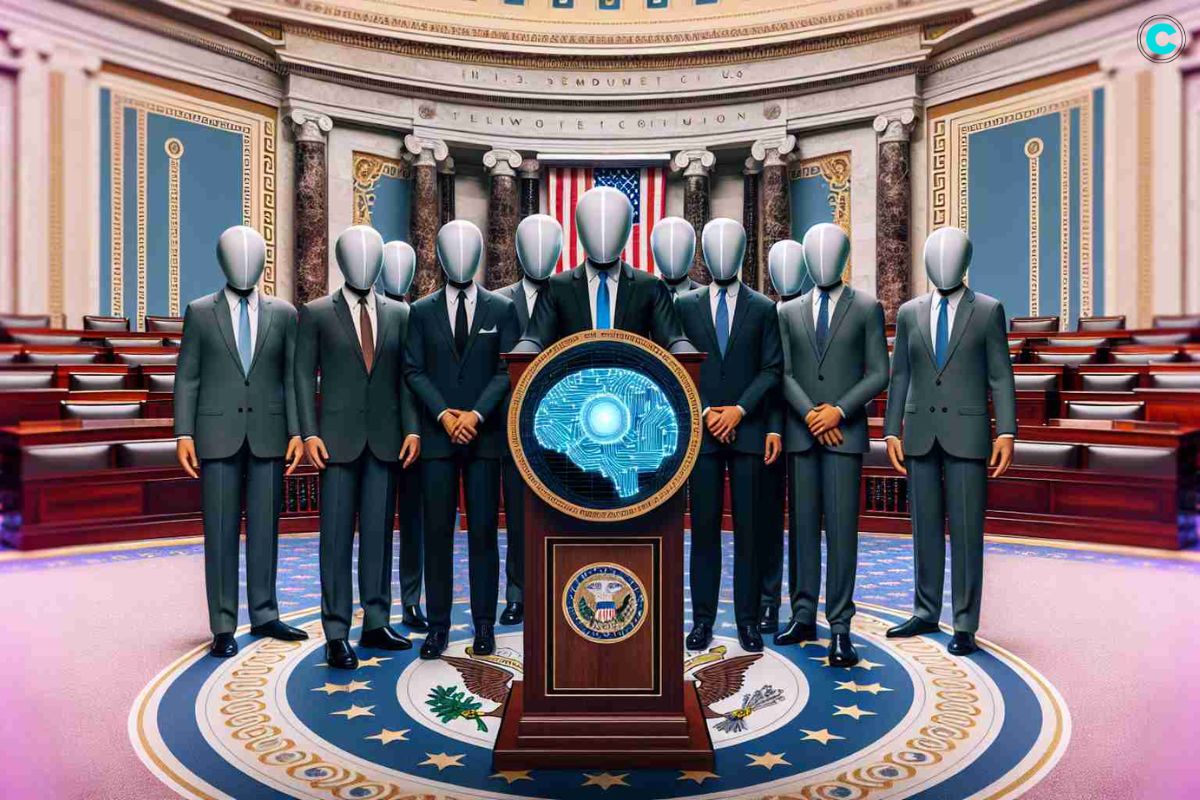(Source – elblog.pl – Decoding AI)
Bipartisan Effort to Secure Election Integrity
Protect elections from AI threats: In response to growing concerns over the potential for artificial intelligence to undermine election integrity, a bipartisan group of U.S. senators has introduced a comprehensive plan aimed at safeguarding the electoral process. Senate Majority Leader Chuck Schumer, alongside three other senators, presented a roadmap designed to enhance cybersecurity and prevent AI-driven misinformation. This initiative includes significant financial support for local election offices to bolster their defenses against AI threats.
The roadmap proposes a multibillion-dollar investment, beginning with $8 billion in fiscal year 2024 and increasing to $32 billion by 2026. Part of this funding will be allocated through the Help America Vote Act Election Security grants, which aim to enhance AI readiness and cybersecurity at the local level. Schumer emphasized the gravity of the situation, warning that AI could “jaundice or even totally discredit our election systems” if not properly managed.
Legislative Actions to Combat AI-Driven Misinformation
The senators’ plan outlines two primary policy goals to counter the protect elections from AI threats. First, it seeks to establish mechanisms for easily identifying AI-generated or altered content through methods such as watermarking and rules for digital content provenance. Second, it advocates for robust protections to mitigate the spread of objectively false AI-generated content, while still safeguarding First Amendment rights.
This funding and regulatory approach comes at a crucial time, as local election officials nationwide face significant funding shortages. The Election Assistance Commission (EAC), which oversees Help America Vote Act grants, has already approved the use of these funds to combat AI-generated election disinformation. The commission’s chairman, Ben Hovland, highlighted the importance of this support, stating that it recognizes the urgent need for resources to address AI-related challenges in election administration.
Additional Legislative and Regulatory Measures
During a Senate Rules Committee hearing, three key pieces of legislation were advanced. These include a bill to ban the use of AI for creating deceptive political ads, another to mandate disclaimers on AI-generated content in ads, and a bill to provide guidelines for protect elections from AI threats. Committee Chair Amy Klobuchar stressed the importance of these measures, noting the serious threat AI poses to democracy.
Parallel efforts are also underway at the Federal Communications Commission (FCC), where Chairwoman Jessica Rosenworcel proposed new disclosure requirements for AI-generated content in political ads. This proposal aims to ensure transparency, allowing voters to be fully informed when AI technology is used in political messaging. However, the proposal faces opposition from within the FCC, with Commissioner Brendan Carr arguing that it could create regulatory imbalances and unfairly burden broadcasters.
In the absence of definitive federal regulations, several states have begun enacting their laws to address AI’s role in elections. State election officials continue to urge federal lawmakers to establish national guidelines to ensure uniformity and comprehensive protection against AI-driven disinformation. Michigan Secretary of State Jocelyn Benson and Charleston County’s Isaac Cramer have both underscored the need for robust federal support to equip election officials with the necessary tools and resources to safeguard election integrity against AI threats.






